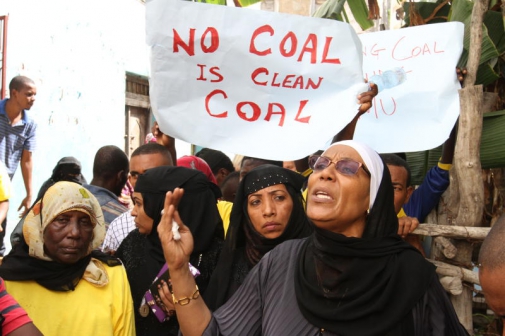×
The Standard e-Paper
Fearless, Trusted News

Lamu County residents protest over plans to construct Sh200 billion coal-fired plant. [Photo: Maarufu Mohamed/Standard]
A controversial Sh200 billion energy project has finally received the go-ahead after protracted legal battles. In a notice in the Kenyan Gazette, the Energy Regulatory Commission (ERC) approved construction of Kenya's first coal-fired power plant in Lamu. ERC maintains that all environmental, technical and economic issues previously raised by rights groups have been sufficiently addressed.